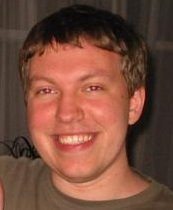That was the title of the second show I went to. The trip through space took a bit longer than I expected, add to that the cab ride through Manhattan and I nearly missed the lecture on "Nothing"-- which was a nice after-journey. One of the moderators couldn't help taking a dig at string theorists (Jim Gates is one, so is Brian Greene who hosts the whole WSF)-- Frank Wilczek told an audience member that string theorists are important but they "haven't made serious contact with empirical reality yet."
Oooh, Nobel slamdowns are sweet.
Going back to the beginning, or the middle, which is where I started, Frank was saying "before the big bang, there was no before, but there was some physics before space time. There had to be rules in order for the big bang to occur."
The moderator rummaged around for possible energy source in space, and pointed out that gravity and electromagnetism work in vacuums. As they discussed the nature of the nothing between planets, Frank pointed out that at some point, we couldn't think of space as nothing: we found out we'd have better laws of physics if we ascribed properties to space. He then drew the analogy of space to water. Fish physicists might not understand the properties of water until you took it away. And then they'd realize all the things it does. Imagine space as nothing, do the math, and then you realize that there has to be something there.
The moderator said, so "nothing" is an active space.
Frank then launched into a description of everything you can find in nothing. Quarks and antiquarks, condensate wiggles that produce pions. (Kind of like ether, he quipped). Higgs condensate by the way, is what he means, and they're pretty sure it can be detected with the large hadron collider. Everyone loved the LHC.
Everything jitters, they told us. Higgs bosuns, pions, quark interactions. Particles and antiparticles come together briefly, then annihilate. It happens constantly (this is why the guy earned a Nobel prize btw).
Paul Davies told us, "finding nothing is not the same as not finding anything." The quantum vacuum has some of the properties of ether. Quantum ether, he says, is mostly frictionless, except in the case of black holes. A black hole vacates the region it occupies. That is, it scrubs a big hole in space. In 1975 Stephen Hawking told a conference full of physicists that black holes glow; they steadly evaporate heat and then disappear. In the quantum vacuum, that space has negative energy compared to the rest of space, so energy flows into the black hole, causing it to shrink. The spin of the black hole radiates energy in a nonuniform way, creating a kind of vacuum friction.
John Darrow added that virtual pairs of particles/antiparticles on the boundary of a black hole, rather than annihilating, hang half in and half out of a black hole, so that the half that stays out is observedly real. (Which speaker 2 scoffed and said, yo can't localize those particles!)
The Hollow Woman
6 years ago



No comments:
Post a Comment
Note: Only a member of this blog may post a comment.